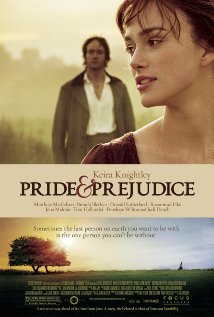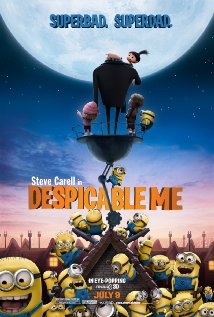Tags
Assumptions, be yourself, Bennet, big picure, catechesis, Catholic, cinema, Drama, Family, film, Keira Knightly, Love, love story, ministry, movie, movie ministry, Mr. Darcy, Prejudice, Pride, Pride & Prejudice, reconciliation
Pride & Prejudice originally was a book written by Jane Austen. It has been adapted for just about every possible performance type and made more than once for the silver screen. I’ll admit that I’ve never read the book… but I do hope to. With so many versions out there, I’m going to limit myself, for the purposes of this entry to the 2005 version where Keira Knightly portrays Elizabeth (aka Lizzie) Bennet.
A quick synopsis for those who don’t know the story: Pride & Prejudice is the story of the Bennett family and all the drama that surrounds the need for the five daughters to marry well since being female prohibits them from inheriting the estate on which they live. The eldest daughter, Jane, is quite known for her beauty and Elizabeth is pretty, but not considered nearly as beautiful as Jane. The middle daughter is very quiet and homely but plays the piano quite well. The other two girls, Lydia & Kitty, are quite silly and get quite a reputation as such. The majority of the film centers around Elizabeth and Mr. Darcy. Mr. Darcy is very shy, not easy to talk to, and seems like he has a cloud of negativity surrounding him. He and Elizabeth seem like polar opposites although despite the appearance of being upbeat, Elizabeth seems very negative when it comes to matters of the heart. So, through a series of overheard conversations, assumptions, misunderstandings and confessions the viewer is drawn in to one of the great love stories of all time.
So what can we gain from what most people see as just a beautiful love story?
Not everyone wears their emotions on their sleeve. One thing that’s obvious from Pride & Prejudice, as in life, is that not everyone shows their emotions the same way. An attempt not to seem to eager can come off as indifferent or hateful. Just because someone does not react the way you think they should, doesn’t make it wrong. In many cases, there is much more to the story. Surely you’ve seen this in how people handle issues of the day. Some of the sweetest, most thoughtful people I know are perceived to be “cold fish” when they first meet someone… and we could go all day on how different people handle grief. So we do have to be conscious of these differences in our everyday lives, especially when we do not know others particularly well, if at all.
There’s always another side to the story. Maybe it’s naïve, maybe it already happens, but I think that when people are running for a major office, they should, once they’ve gotten pretty close to the end of the campaign, be taken into a room and brought up to speed on all the important stuff going on from the inside track. I truly believe this is the reason for at least 50% of the broken campaign promises. Once they really see the full picture, it’s not as simple as it looked on the campaign trail. We see something similar in Pride & Prejudice. Mr. Wickham tells a story of how he and Mr. Darcy are acquainted and Elizabeth takes it as gospel because of how little she thinks of Mr. Darcy. Also, Elizabeth doesn’t discuss the various exchanges she has with Mr. Darcy after their first terse encounters. So when she has a change of heart about Mr. Darcy, everyone believes the worst of him and can’t understand why she has made such a complete turn around. There’s always more to the story. The trick is realizing it and seeking the truth. Do you notice it in your workplace, or with your family? When both sides come out, things usually make much more sense. Think about this in terms of Church history. When you hear that “Catholics used to chain up the bibles” it’s usually to make Catholics feel like the Church was withholding the Bible from the people. But, when you consider that this accusation was pre-printing press and that bibles were hand copied and there weren’t really that many copies – and they definitely weren’t cheap, it makes much more sense. Look at how we interpret Sacred Scripture. There are so many stories where one small historical or cultural detail brings worlds of clarity. Make sure you seek the big picture.
Assumptions get you into trouble. I won’t repeat the old saying, but in some ways its killing me not to. Nearly every character in Pride & Prejudice makes assumptions. Either assuming to know another characters feelings, assuming the accuracy of a story that may be some form of half truth or that they can predict the actions of others. Assumptions lead to lots of problems. Now, that doesn’t mean that you can’t look ahead, or try to read between the lines, but don’t take it for certain until the proof is there. These characters assume that they’ve got all the information, when in reality missing pieces make a huge difference. Think about some times in your life where you made assumptions or had assumptions made about you? How did they make you feel?
We wouldn’t tease you if we didn’t love you. Elizabeth is constantly teasing, even when propriety would suggest she should not do so. We see that her Father has a similar sense of humor. Obviously, not everyone finds this sort of behavior acceptable, especially Lady Catherine, but for Elizabeth, that’s just the way she is. I have to admit, this is probably the trait I most admire in Elizabeth, but then, I come from a family whose motto is “We wouldn’t tease you if we didn’t love you.” But, it is something we need to be aware of, both in others and ourselves. One senior gentleman I deal with regularly teases so close to my insecurities, it took me a long time to realize that he really was kidding. But after watching him with others, and having a few more exchanges with him myself, I realized that he really was teasing me, that he didn’t mean things the way I was taking them and that he didn’t waste time with those he didn’t care for. I almost missed getting to know a great guy. What teasing have you gotten lately? Was it helpful and relaxed or hurtful?
What is “pride”? So, we’ve hit on many of the prejudice parts of the movie, but how about pride? There is a lot of “pride” going around. Pride in status and breeding, pride in accomplishment, family pride, and pride in self. We need a certain amount of pride in our lives and not all pride is bad. But we see the negative side of pride in this flick. So many of the characters are so full of pride, they don’t seem to see their faults and are very quick to point out the shortcomings of others. What ways do you think that pride is helpful? In what ways is it hurtful?
Pride & Prejudice is classic, beautiful and romantic. It’s got a PG rating and is very clean, apart from a little light kissing at the end. However, I have a feeling that only artsy teens and adults will enjoy this film. And hey, if it inspires anyone to read any of Austen’s work, isn’t that a good thing?!



